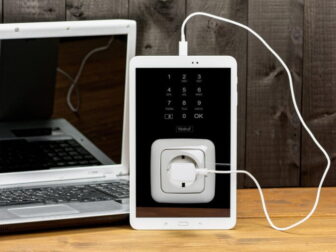Tag - WiFi vs Bluetooth
Blog , January 23, 2024 , IoT technology, Smart plugs, Smart Socket, WiFi vs Bluetooth
WiFi vs Bluetooth: Understanding the Differences and Choosing the Right Technology for Your Needs
When it comes to wireless communication technologies, WiFi and Bluetooth are two of the most commonly used options. While they both serve the same purpose of enabling devices to connect and communicate wirelessly, there are key differences between the two that make each better suited for certain situations.
WiFi, short for Wireless Fidelity, is a technology that allows devices to connect to the Internet or a local network wirelessly. It offers faster data transfer speeds and a longer range compared to Bluetooth, making it ideal for streaming high-definition video, online gaming, and other data-intensive tasks. WiFi connections can also support multiple devices simultaneously, making it a popular choice for homes and businesses with multiple users.
On the other hand, Bluetooth is a wireless technology that allows devices to connect and communicate over short distances. It is commonly used for connecting smartphones to accessories like headphones, speakers, and smartwatches, as well as for transferring files between devices. Bluetooth consumes less power compared to WiFi, making it a more energy-efficient option for devices like wireless headphones and fitness trackers.
One of the key differences between WiFi and Bluetooth is their range. WiFi typically has a range of up to 100 feet indoors and 300 feet outdoors, depending on the router and any obstacles that may interfere with the signal. Bluetooth, on the other hand, has a range of around 30 feet, making it more suitable for connecting devices in close proximity to each other.
Another important factor to consider when choosing between WiFi and Bluetooth is data transfer speed. WiFi offers faster speeds, with the latest WiFi 6 standard capable of reaching speeds of up to 9.6 Gbps. Bluetooth, on the other hand, has a maximum data transfer speed of around 3 Mbps, which is sufficient for most everyday tasks but may not be ideal for streaming high-definition video or large files.
When it comes to security, WiFi is generally considered to be more secure than Bluetooth. WiFi networks can be password-protected and encrypted to prevent unauthorized access, while Bluetooth connections are more susceptible to hacking and eavesdropping due to their shorter range and lack of encryption by default. However, both technologies have security features that can be enabled to enhance protection.
In conclusion, both WiFi and Bluetooth have their own strengths and weaknesses, and the choice between the two will depend on your specific needs and preferences. If you require fast data transfer speeds and a longer range for tasks like streaming video and online gaming, WiFi may be the better option. On the other hand, if you need a wireless connection for devices in close proximity with lower power consumption, Bluetooth may be the more suitable choice.
